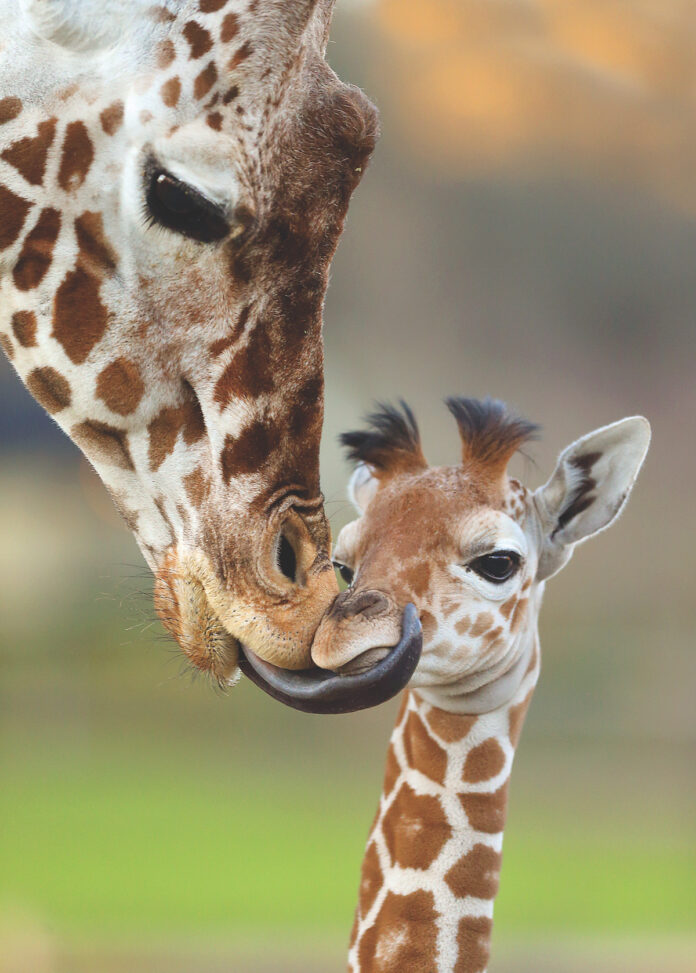Safari West is an incredible place. I’ll never forget the time I fed an apple slice to a giraffe that wrapped its three-foot-long, dark-black tongue all the way around my hand before twisting it backwards to pick its own nose.
A trip to Safari West instills a sense of reverence at the sheer diversity of species this planet contains, and imparts a sense of mission, as many of the species protected and conserved at Safari West are critically endangered in the wild.
The genesis of Safari West is, unsurprisingly, as interesting as the place itself. In the 1980s one Peter Lang purchased 400 acres in the Mayacama foothills to safely house his growing collection of exotic animals. What was formerly a cattle ranch became a world-class conservation breeding facility for engaged species. In a romantic aside, during the initial years of establishing Safari West, through his work with the San Francisco Zoo, Lang met the lead curator and raptor-specialist who would become his wife and partner at the conservation, Nancy Lang. The two have combined their capacities to create an outstanding, world-class animal preserve.
Peter Lang’s dedication to the animals, and Safari West’s mission of preservation and protection, are so strong that during the 2018 Tubbs fire, he ignored evacuation orders and spent the entire night putting out fires and moving animals to safe enclosures, risking his own life. Though the Langs lost their home and several buildings on the preserve, none of the 1,000 animals who call Safari West home were hurt. It’s stories like this that really fortify one’s faith in human goodness.
Back in action after the Tubbs fire, Safari West provides programming to inform and inspire, at least as much as they can during the pandemic. A particularly enticing offering is the Conservation Dinner Series, where different guest speakers give after-dinner lectures on pertinent environmental and zoological topics at the Savannah Cafe, which offers diners the unique experience of Braai, a South African barbecue-style gathering that fosters connection, catch-ups and exceptional food cooked over wood stoves. It’s a phenomenon to experience on its own, and richer still when paired with insightful information from experts.
This past Saturday, Savannah Cafe patrons heard from Dr. Sandra Curtis, director of innovative projects with the Plastics Pollution Coalition, about their ongoing efforts and initiatives. The PPC is a global alliance of over 1,200 organizations, businesses and thought leaders in 75 countries, working toward a world free of plastic pollution and its toxic impact on humans, animals and the environment. Plastic is detrimental to every facet of life on Earth, and though a non-disposable product, 33% of plastic is used once and then “thrown away,” meaning that as it isn’t biodegradable, it is simply broken up into smaller and smaller pieces without actually being disposed of. Americans alone discard more than 30 million tons of plastic a year, with only 8% recycled. The remaining waste fills landfills, spoiling groundwater. (Stats taken from plasticspollutioncoalition.org)
PPC spear-heads projects like The Last Plastic Straw project, which addresses the jaw-dropping crisis of over 500,000,000 straws used per day in the United States, resulting in devastating plastic pollution. The ongoing effort to make plastic straws a thing of the past has gained great momentum—I know most of my favorite local coffee shops and eateries now offer biodegradable straws, and if I see plastic I don’t take it—but we need to make sure these sort of initiatives become second nature, rather than brightly burning but quickly extinguished endeavors toward change. PPC offers levels of engagement donors can opt into, including saying no to plastic straws, requesting that local eateries only offer straws upon request and/or switch to biodegradable product, and hosting a screening of STRAWS, a documentary by Linda Booker, named by One Green Planet one of the “5 documentaries that will make you rethink single-use plastics.” If you missed this particular post-braai talk—and most of us did, I imagine—learn more about PPC and your ability to effect positive change by visiting plasticspollutioncoalition.org.
I spoke with Sandra Curtis after the event, which she said went incredibly well. Her focus, she said, was animal-based, to best suit the setting. There are, unfortunately, myriad different catastrophes one can address when discussing the impacts of plastic. “I talked about the impact plastic has, especially on ocean animal life—I’m sure you’ve seen pictures of sea turtles with their necks bound in plastic drink rings. It’s horrific. I’ve done this three or four times now, and this turnout was the biggest,” she said. “It’s wonderful that they invite us to do this—and I want to share that the first time I was invited to speak at Safari West, [Conservation and Outreach Manager] Marie Martinez asked me to walk around with her and then talk to the staff and make any suggestions that might be helpful so they could reduce their plastic use. And it was a very interesting conversation with their staff. They’ve done an incredible job internally of reducing their plastic footprint.”
This coming Friday, Dec. 17, Conservation Dinner Series will host Robert D. Rubin, founder and director of the Pacific Manta Research Group, which focuses heavily on the manta rays of the Eastern Pacific. This non-scientific talk on manta rays was given as a TEDx Talk several years ago, and is a wonderful way to learn more about the practices, patterns and need for these exceptional creatures. Go to safariwest.rezgo.com to book your braai.









